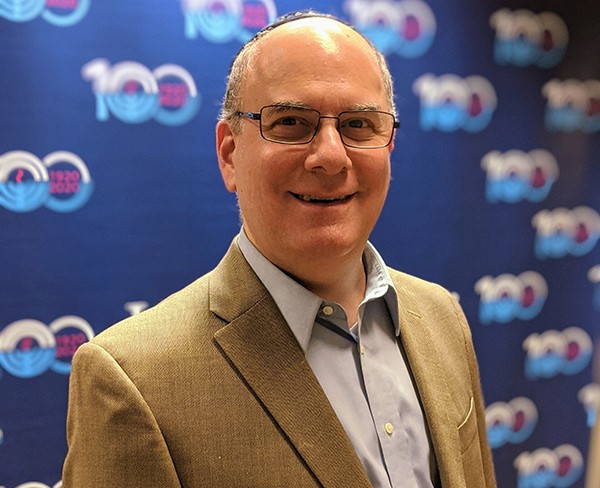
BY RABBI BARRY COHEN
About seven months ago, we first started experiencing restrictions in response to the COVID-19 pandemic. Time can be a paradox. Sometimes seven months feels like yesterday, and sometimes seven months feels like years.
These past months have been draining. I am all-too-often exhausted: spiritually, emotionally and physically. I have had to cope with stressor after stressor. I have been worried about being exposed to the virus. I am filled with anxiety about the upcoming elections. I am angered by how politics has weakened faith in the ideas that hold our nation together. I continue to be shocked by the rejection of science, facts and truth. I am not satisfied with the education my children are receiving through virtual classes. And I still have to keep my household in order, run the errands, cook the meals and pay the bills. Very little time or energy is left for me to take care of myself.
As I review the words I have written, I do not want to be perceived as whining. I’m just trying to express what I feel – and why I feel that way.
Since almost all of us can share similar feelings and experiences, I am concerned that too few of us are coping constructively, and too many of us are self-medicating. I hope you are not trying to escape through drugs or alcohol.
I suspect that too many of us – adults, youth and children alike – are spending too much time on social media. This amplifies our fears, worries and anxieties. Or we create an echo chamber that merely reinforces what we already believe, driving a wedge between us and others who do not think, feel or believe the way we do.
What effects have these seven months had on our relationships with our loved ones – with our significant others, our spouses, our children, our siblings, our parents, others? How much are our families a microcosm of our society – divided, strained or distant?
We can turn to Jewish teachings and traditions for answers. One way to heal the damage inflicted by the past seven months is to turn to the gift we receive every week: Shabbat. Many of you may say, “but I’m not religious.” You don’t have to be religious to observe Shabbat and to benefit from its healing potential.
Shabbat is our opportunity to foster a different kind of time – slower, calmer, meaningful, even sacred and transformative.
For those comfortable using technology on Shabbat, take advantage of the diverse virtual worship and study offerings from local synagogues. But use technology differently on Shabbat. If we watch TV, watch it constructively. Let’s turn off the 24-hour news networks and instead watch a drama, comedy or adventure film with family. More significantly, can we put our smart phones away for 24 hours? If that question makes us uncomfortable, we need to ask ourselves whether we have a smart phone addiction.
Shabbat is time set aside to devote to our relationships. We can reach out to our best friend, significant other, spouse, child/children, parent/parents and others. Use this time to decompress and get in touch with what we are feeling during this pandemic. Adults can model this expression of feelings for their children. And we can encourage our youth to express what they feel through words, art and music.
During Shabbat, we can cook a meal together. Just imagine the options. We can perfect a meal that has been handed down for generations. Or we can try something new. If we have Ashkenazic roots, let’s cook a Sephardic meal; if we have Sephardic roots, let’s cook an Ashkenazic meal. I grew up in an “Ashkenormative” bubble. I didn’t learn about all of the amazing Sephardic and Roman recipes until I was in rabbinical school.
Finally, on Shabbat we can remember to take care of ourselves. Within our comfort zones, we can pray, meditate, journal, write, create art or simply get outside. (But please wear a mask and socially distance.)
Every week, we have an opportunity to escape the stresses, strains and anxieties that surround us. Every week, we have hard-wired into our calendar an opportunity to heal spiritually, psychologically and physically.
During our next Shabbat, may we experience shalom: the sacredness of wholeness, completeness and peace.
Rabbi Barry Cohen is Jewish Community Chaplain of the Greater Portland Area.
Rabbi's corner
In addition to the Chaplain's Corner, the Jewish Review offers space for our community's rabbis to share their thoughts on the week's parsha or current events. The Oregon Board of Rabbis coordinates the Rabbi's Corner. To schedule a date to submit a 500-word piece, email OBR President Rabbi Eve Posen, eposen@nevehshalom.org.

0Comments
Add Comment